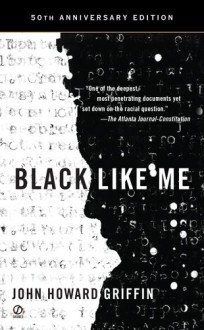Black Like Me
The setting is the deep South in 1959. What began as a scientific research project ended up fueling the racial upheavals in 1960s America. When John Howard Griffin dyed his white skin to black to find out for himself if people are discriminated against based on skin color alone, he was not...
show more
The setting is the deep South in 1959. What began as a scientific research project ended up fueling the racial upheavals in 1960s America. When John Howard Griffin dyed his white skin to black to find out for himself if people are discriminated against based on skin color alone, he was not prepared for what he discovered. The rest is history.
show less
Format: paperback
ISBN:
9780451234216 (0451234219)
ASIN: 451234219
Publish date: October 20th 2010
Publisher: Signet
Pages no: 208
Edition language: English
Category:
Classics,
Non Fiction,
Autobiography,
Memoir,
Biography,
History,
Cultural,
African American,
Sociology,
Biography Memoir,
Race

This book is the diary of John Howard Griffin, a journalist who decided to conduct a social experiment about segregation in the American South. In the winter of 1959, John started taking vitiligo pills to turn his skin dark brown. He left upper-class white society to travel through the South as an u...

I remember reading this for a psychology class in college and I loved it.

Have to read this for school in a couple of weeks, so thought I'd just add it now :) And apparently we need permission to read this book from our parents, which I think is ridiculous. But I am really excited to read this... the premiss sounds really good!

I can't say enough good things about this book. I thank men like John Howard Griffin who took a stand against racism despite the fact that their own people were vehemently against it. This entire book was a fantastic sociological and journalistic investigation of colour relations in the South in the...

I had heard about this book for so long, I wondered why I'd never read it. So glad I finally decided to!I kind of wish someone would do this experiment again. I mean, it feels like we've come an awful long way from 1959, and in a lot of significant ways I think we have. But I can't give an accurate ...






 11 years ago
11 years ago